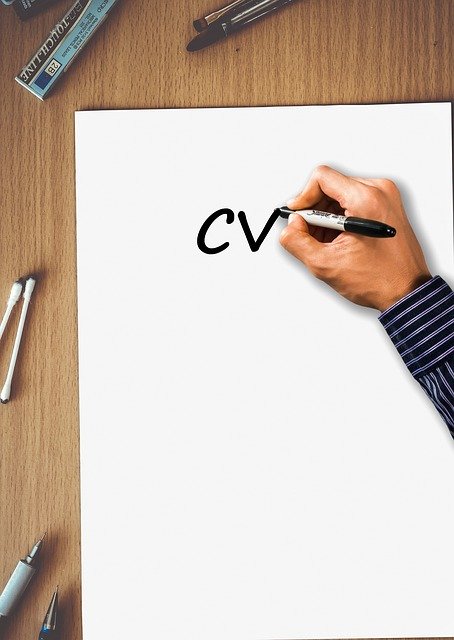Whether you are looking for part time work to make some money whilst studying, or you are applying for your dream job which your career has set you up for, your CV or resume is the first step to telling the prospective recruiters all about yourself! First impressions really do count, and so in order to get yourself through that first hurdle and invited to interview – it needs to be top notch! Here’s our run down on the top tips you need to do this!

- Make sure dates are consecutive. If you’ve had a gap between jobs (or no prior job) it’s not a problem, as long as you explain it. A gap with no explanation will only lead to unanswered questions so it’s better if you are upfront.
- A CV should be word processed and well laid out, but don’t rely on technology to check it for you. Spelling, punctuation and grammar is key, but remember that a word processing programme won’t pick up every error – for example the world one is spelt correctly, but it has a totally differently to the word won! If these aren’t you strong points, ask a friend, relative or perhaps even a tutor to look over it for you!
- Whilst it’s great to have a CV saved away, it is key to check that your CV is suitable for any application you are making, before you make it. It is therefore recommended that you tweak your CV each time you apply for a role. Read the job advert or description and ensure that the most relevant skills and experience are highlighted appropriately, but without making your CV too long.
- On that note, a CV should never be more than 2 pages (unless you are applying for a super senior role). 1-2 pages is ideal. Some people say 1 page is best, but if you feel you cannot fit everything you need to say on one page, up to 2 is fine as long as its relevant.
- Sell yourself! Highlighting relevant skills and experience is key, but just be sure not to lie or go over the top. You can make something sound slightly more interesting than it is, but lies are a complete no-no!
- Make your CV stand out! This doesn’t mean use bright colours or pictures, but a well laid out, easy to read CV may well make yours stand out and go to the top of the pile ahead of other applicants.
- Try to avoid generic phrases like “team player” and “self-starter”. The recruiters will be bored of the same old phrases, and are likely to pass over CVs which include them.
- Where possible and appropriate, include a covering letter appropriate to the role. By all means start with a template, but make each covering letter specific to the job and the company. Pick out key details from your CV, but also from the job description which shows you have read it and how you meet it.
There’s no denying it, job hunting can be hard work. It can also be incredibly disheartening. If you are struggling to get your foot through the door and to that next stage of the recruitment process you could try up skilling. There are plenty of free courses online such as through Open Learn from the Open University and Edx. You might not get a formal qualification from the course, but extra skills will always help make you more employable.
Another option is to consider unpaid work such as work experience, an internship or volunteering. Doing some work in the field you are interested in will show any prospective employers how serious you are. You will also get exposure to skills and knowledge as well as make new connections. It might not be ideal in the short term, but in the long term it really may pay off! Good luck!